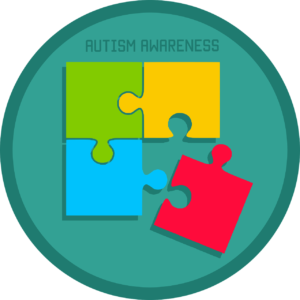Parents with Aspergers have often unique abilities to understand the complex needs of their own Aspie offspring because they can memorize how it was when they experienced similar problems in childhood. There are no better teachers than the own parents who can guide a Aspie child through the daily routine. While a parent with Aspergers can be the only people who really understand the cues it is important that this information can be well communicated to other carers such as teachers, disability assistance workers eg.
Parents with Aspergers are usually eager to parent in their child’s best interests and try hard to understand their kids. However, some parents with Aspergers suffer from the affecting neurological problems noted herein. The Aspergers parent loves their child very much, but can’t show this to the child because of the lack of social and communicative skills. It is very important for parents with Aspergers to have support from a specialist to learn this skills.
Many parents with Aspergers have kids on the autistic spectrum and are enormously challenged. They may admit to struggling the same way as kids with Aspergers with information and sensory input at public events, playgrounds eg. for example.
Some autistic parents lack to see the overall impact of their parenting problems on their kids as being significant and are unwilling to seek out autism-appropriate parent supports & resources. A parent may be unaware for his condition and can be relatively high functioning in the work place but be not aware of a luck in efficient parenting skills. However if they get diagnosed, they claim not to have the disorder (because they don’t like changes and do not like to get labeled anyway.)
Parents with Aspergers Syndrome can exhibit either minor and/or significant problems in their parenting.
Aspergers parents are invisibly disabled and can have a weak central coherence, poor cognitive shifting & lack of a theory of mind. This one small piece adds enormous dysfunction to these families.
Some parents with Aspergers require a great deal of support with their parenting which includes:
- nurturing
- care taking
- relating
- understanding
- short and long term planning
- the provision of support to the youngster (emotional, relational and financial) as well as guidance
- teaching
Poor Cognitive Shifting:
- they are over stimulated & overwhelmed neurologically
- they may blame others around them for their distress
- attentional deficit of significance when the parent has care and control of young kids
- a deficit in the shifting and sifting of attention between sensory schemas
- sensory hypersensitivity and hyposensitivity (a sudden very strong odor may prevent the parent from noticing what the youngster is (also suddenly) doing)
- sensory issues: difficulty to tolerate normal noise, mess and chaos of childhood and especially the high pressure needs of special needs kids for any length of time.
- they leave kids to fend for themselves by leaving the situation (by shutting down, melting down or through withdrawing from the toxic stimuli)
Mind blindness (luck of mind reading):
- inability to recognize and read faces
- unable to ascribe mental states to others as communication is taking place
- cannot correctly discern the thoughts, wishes, knowledge or intentions of their kids
- difficulty distinguishing whether their kids’s actions are intentional or accidental
Other typical Characteristics
- Perfectionism
- Regimentation
- Obsessive behavior
- Poor social awareness and finds it hard to imagine how his behavior impacts on other people
- Sensory difficulties: oversensitive to noise, touch, smell or to a particular taste … very limited diet …
- Gets very upset if routines are broken
- Anxiety
- Anger
Weak Central Coherence:
- Many parents with Aspergers hyper focus in on details rather than wholes, and have odd focusing of attention
- child safety issues: odd focus of attention can prove lethal (in a car, while crossing the street, at the beach, at the cliffs edge)
Aspergers parents need to learn to
- Recognize the disorder
- Explain the symptoms to others
- Communicate to family members in a positive way
- Resolve issues
- Find strategies for positive parenting with the help of professionals
- Understand criticism
- Show love and affection
- Ask children about their feelings and how to give them emotional support



